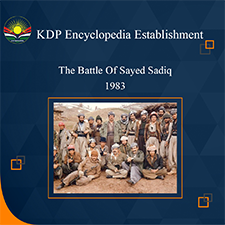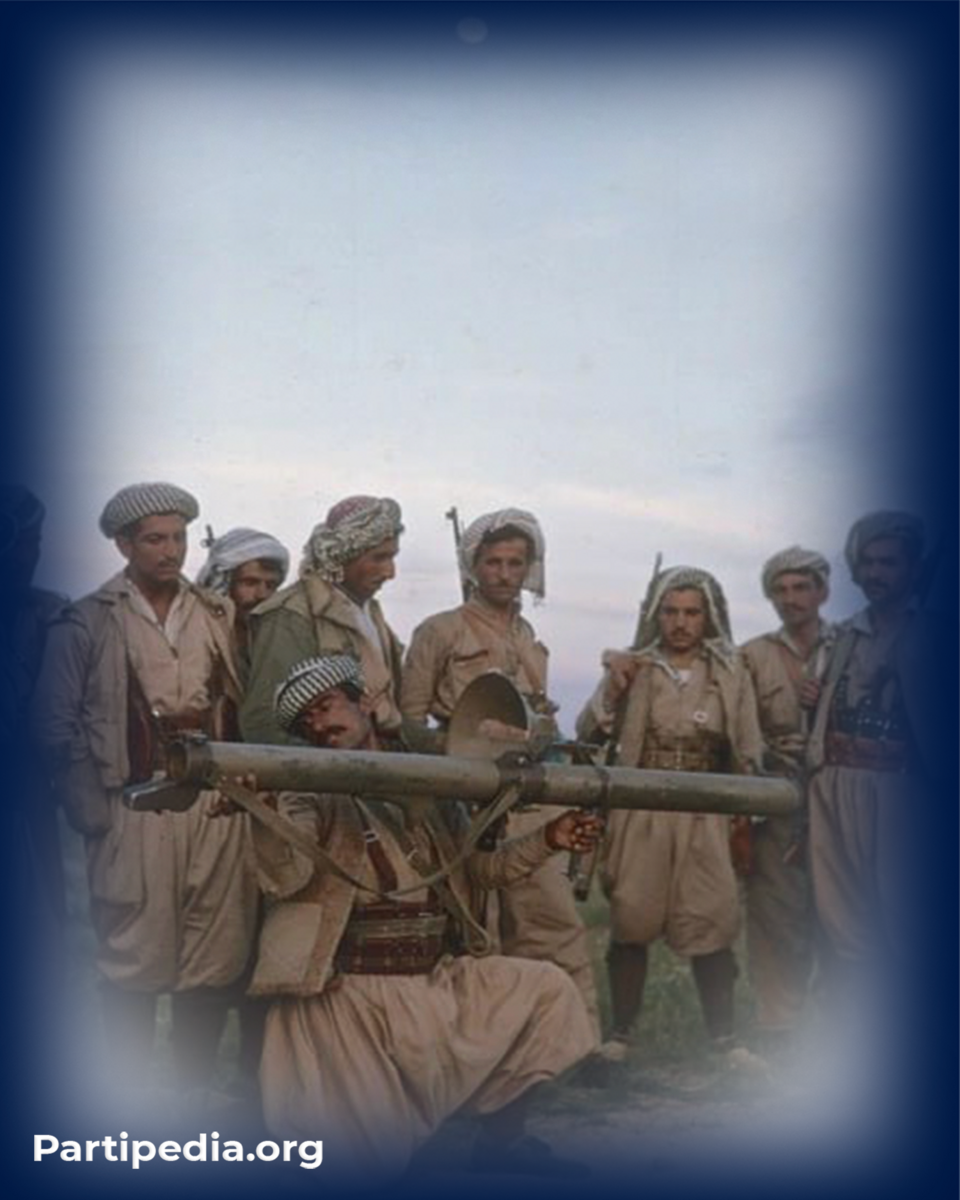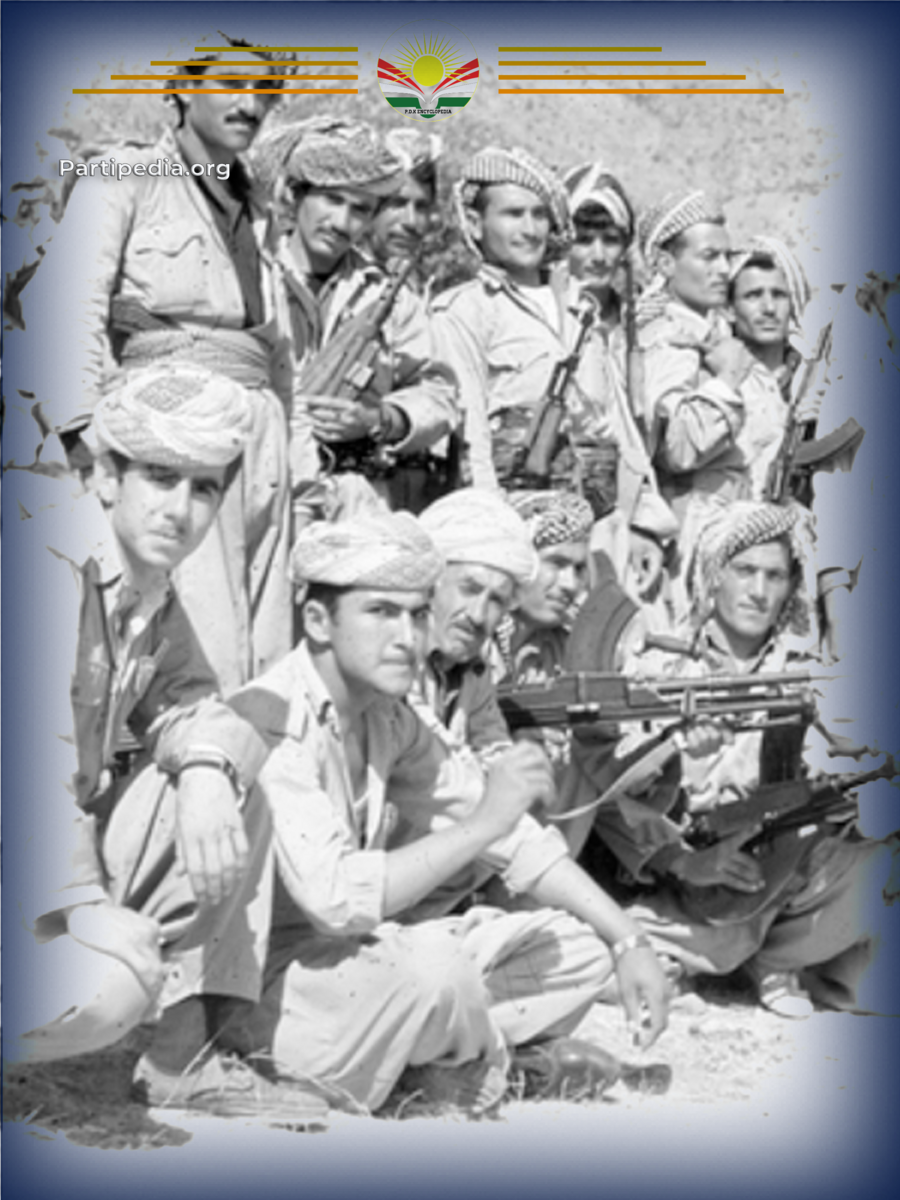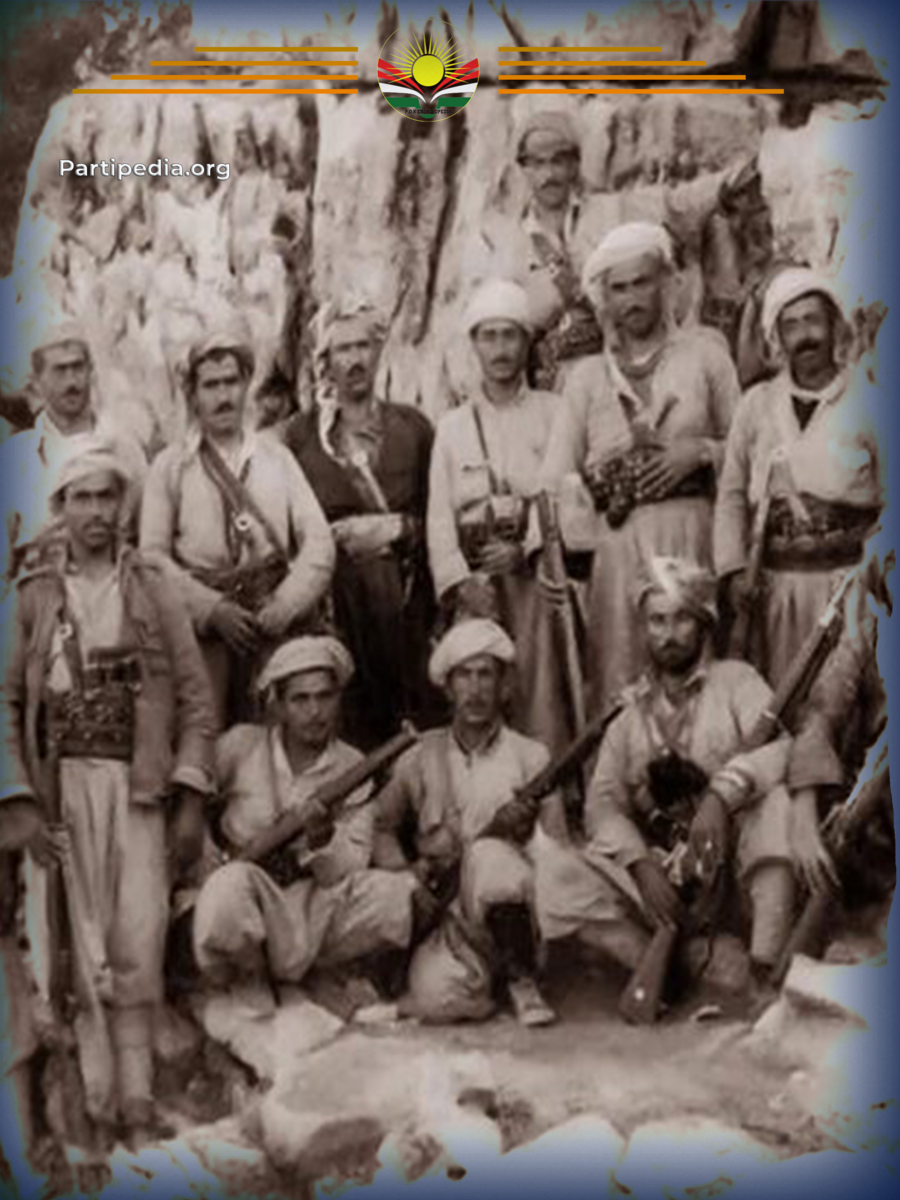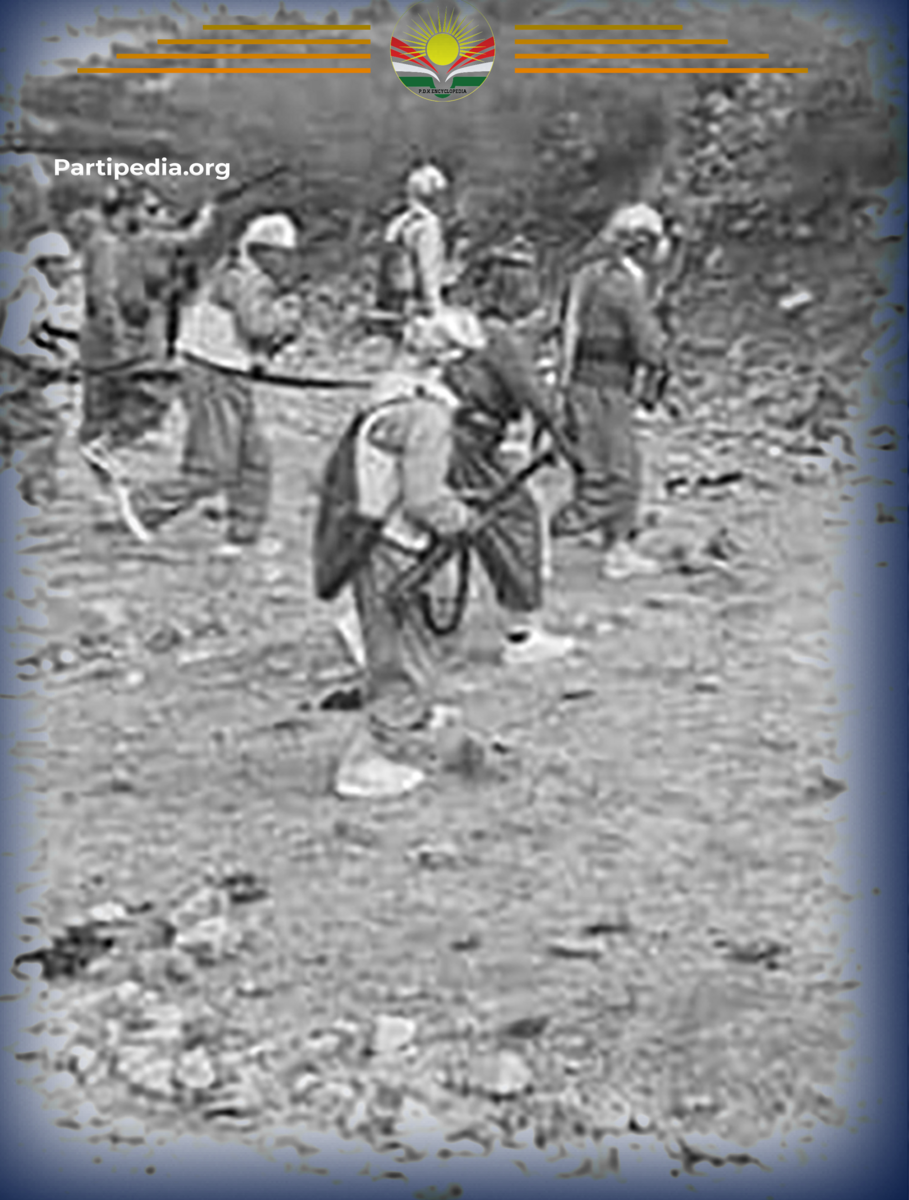The establishment of the Kurdistan Democratic Party (KDP) on August 16, 1946, is a monumental day in the history and literature of the party[1]. Every year, all its members, supporters and Peshmergas celebrate its founding anniversary with enthusiasm and happiness. Moreover, there were many times when the occasion was celebrated differently. For example, there were numerous instances when the Peshmerga conducted tactical operations and attacked the Iraqi Army's bases and military installations, severely damaging them and lowering the Iraqi army’s morale by showing them that the fire for the freedom of the Kurdish people is still burning.
One of the activities by the astute Peshmerga Forces to commemorate the establishment of the KDP was to draw up a plan to carry out an operation to strike the Ba'athist military institutions and cause chaos among their ranks.
The courageous Peshmerga Forces attacked the Iraqi army positions on the road between Sayed Sadiq and Shandari. The Peshmerga Forces were able to deal severe damage to their bases and possessions. Additionally, the Peshmerga Forces suffered no casualties. However, after the Peshmerga were on their way back, they were ambushed by the Iraqi army. Unfortunately, four Peshmergas were martyred: Commander Abubakr Haji Osman, Ali Rasul, Deputy Head of the Region, Jalal Mohammed Dolasoori and Shahab San A Hamad[2].
It's important to note that the Peshmerga has consistently engaged in combat and other military operations to advance the Kurdish people's rights movement. Furthermore, they have been able to inflict significant damage on the enemy by attacking the military installations and bases of the Iraqi government. Additionally, they have also demonstrated that even on special occasions and celebrations, they will not stop fighting for the cause. The Peshmerga’s effort and their fight for freedom became a symbol of hope for the Kurdish people and a message to the government officials that the revolution is still alive. Which helped the Peshmerga Forces continue with their operations and keep damaging the Ba’ath regime.
Source:
- مهسعود بارزانی: بارزانی و بزوتنهوهی ڕزگاریخوازی كورد، بهرگی چوارهم، 1975-1990 شۆڕشی گوڵان، بهشی دووهم، چاپی یهكهم، چاپخانهی ڕوكسانا، 2021.
- دهستهی ئینسكلۆپیدیای پارتی دیموكراتی كوردستان: مێژووی پارتی دیموكراتی كوردستان- كۆنگرهو كرنفرانس (پڕۆگرام و پهیڕهوی ناوخۆ) چاپی یهكهم، 2021.
[1] دهستهی ئینسكلۆپیدیای پارتی دیموكراتی كوردستان: مێژووی پارتی دیموكراتی كوردستان- كۆنگرهوه كرنفرانس (پڕۆگرام و پهیڕهوی ناوخۆ) چاپی یهكهم، 2021، ل10.
[2] مهسعود بارزانی: بارزانی و بزوتنهوهی ڕزگاریخوازی كورد، بهرگی چوارهم، 1975-1990 شۆڕشی گوڵان، بهشی دووهم، چاپی یهكهم، چاپخانهی ڕوكسانا، 2021، ل60.




